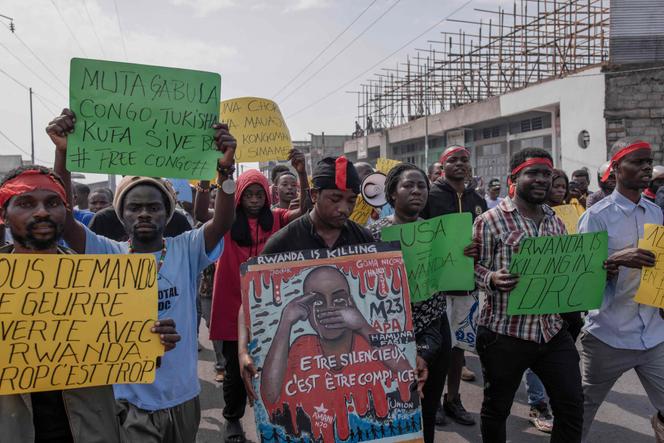


While the security situation in the east of the Democratic Republic of Congo (DRC) has continued to deteriorate over the last few months, Angola, urged by the United States, is attempting to revive a diplomatic process that has reached the end of its rope between Rwanda and the DRC.
The outcome of the latest attempt organized by the Angolan "facilitator," President Joao Lourenço, would have been enough to calm many diplomatic tempers. It was "a fiasco," according to one participant at the end of the hour-and-a-half-long meeting held behind closed doors on Friday, February 16, on the sidelines of the African Union's annual summit in Addis Ababa. The Angolan head of state, along with his South African counterpart Cyril Ramaphosa and Kenyan counterpart William Ruto, who were present in the same room, could only observe, as one participant put it, the "extreme mistrust, even aggressiveness" existing between Rwandan President Paul Kagame and Congolese President Félix Tshisekedi. A new meeting that was supposed to be scheduled for the following day was canceled.
"It was quite tense because of [Paul] Kagame's aggressive attitude and because [Félix] Tshisekedi was quite direct," said a Congolese official. Kinshasa, backed by the observations of UN experts, accuses its neighbor of armed aggression through the M23 rebels. This movement, essentially made up of Congolese members of the Tutsi community, benefits from "ongoing support from the Rwandan defense force," according to the latest UN expert report published at the end of December 2023. This support is not only technical.
After being dormant for eight years, the M23 suddenly awoke in November 2021, routing the Armed Forces of the Democratic Republic of Congo (FARDC), demoralized by chronic under-equipment and lack of leadership. In recent days, the M23 has stepped up its military pressure on the regional capital of North Kivu, Goma. This, despite the dispatch of reinforcements to the ranks of the FARDC, despite the support of local militias, despite the assistance of soldiers from Burundi as well as the first contingents, notably South African, dispatched by the Southern African Development Community (SADC), a sub-regional organization of 16 countries.
On Friday, the Congolese president denounced what he described as "a war to continue the plundering of [his] country and make Rwanda and its accomplices happy." North Kivu's underground abounds with natural resources. Some mines are said to be exploited by Rwandan interests, along with other local and foreign players, often operating illegally. For the president, Kigali is primarily responsible for the misfortunes of the hundreds of thousands of people displaced by the violence: "The evil of the region" is Rwanda.
You have 56.61% of this article left to read. The rest is for subscribers only.
